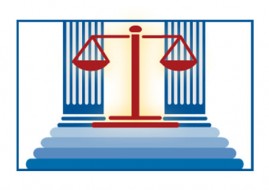Pecuniary Damages Rule Applied to Malpractice in Criminal Cases
By Lazar Emanuel [Originally published in NYPRR September 2002]
In Wolkstein v. Morgenstern [713 N.Y.S.2d 171 (App. Div. 1st Dept. 2000)], the First Department promulgated a simple and clear rule in all civil cases: Except in cases of conduct “so extreme in degree and outrageous in character as to go beyond all possible bounds of decency…,” a plaintiff in a legal malpractice action may not recover for any item of damages other than pecuniary loss. In short, there can be no recovery for emotional or psychological injury in actions for lawyers’ civil malpractice. [See, NYPRR, Nov. 2000, “Malpractice Plaintiff Limited to Monetary Loss.”]
The same court has now extended this rule to legal malpractice in the representation of clients in criminal cases. Wilson v. The City of New York, [No. 509-510 (App. Div. 1st Dept., 5/30/2002)]. Defendant Wilson, a 33-year old disabled and homeless man with no criminal record, was charged with robbery in the first degree. None of his five alleged victims was able to identify him positively, and three of them stated that Wilson was not involved in the robbery at all. A second defendant told his Legal Aid counsel that Wilson was not one of the two robbers. Wilson’s court-appointed lawyer knew all these facts but, nevertheless, advised Wilson to plead guilty to attempted robbery in the second degree. Wilson was sentenced to two years in prison, to be followed by one and one-half years of post-release supervision. After he had served four months in jail, on motion by the prosecution, Wilson was released and his conviction overturned.
Wilson’s malpractice complaint alleged, in addition to these facts, that his court-appointed lawyer had never requested a review of the initial bail determination and had not told him that the second defendant would cooperate to exonerate him. It also alleged that as a consequence of counsel’s malpractice, Wilson had been confined to prison, where he had been assaulted by an inmate, causing him to fear “for [his] life and safety.”
In construing Wilson’s complaint, the court distinguished between pecuniary damages and non-pecuniary damages. Pecuniary damages “compensate the victim for the economic consequences of the injury, such as medical expenses [and] lost earnings.” Non-pecuniary damages are “those damages awarded to compensate an injured person for the physical and emotional consequences of the injury” [citing McDougald v. Garber, 73 NY2d 246, 251]. Because Wilson’s complaint did not allege any pecuniary damages, the Court concluded that his injuries were entirely non-pecuniary.
The court rejected Wilson’s argument that the Wolkstein rule (supra) should not be applied in criminal cases. Wilson had argued that the negligence of lawyers in criminal cases could not be measured in pecuniary terms. Because the usual harm was an unjustified and irretrievable loss of the client’s liberty, the measure of damage could not be the same as in civil cases. Limiting recovery to pecuniary damages would deny criminal defendants any relief at all.
The court’s response to Wilson’s arguments was simple and severe:
The court’s holding in Wolkstein…limiting victims of legal malpractice to pecuniary damages, although issued in the context of a claim of legal malpractice in a civil action, amounts to a policy-based ruling not limited to that context. The non-pecuniary compensatory damages precluded in Wolkstein constituted an important aspect of the [victim’s] claims there.
She had been unnecessarily evicted from her home as a result of the alleged malpractice of her attorney, resulting, understandably, in alleged emotional and psychological injury as well as some pecuniary damage. Thus, the determination that the non-pecuniary damages must be dismissed is as applicable in the instant matter as it was in Wolkstein.
The court went on to dismiss Wilson’s claim also for failure to establish the “but for” element of recovery for legal malpractice, or proximate causation.
In the seminal case of Wolkstein v. Morgenstern, supra, tenant Wolkstein had retained Morgenstern to represent her in a holdover proceeding in Housing Court. Morgenstern told Wolkstein that the case had been settled when, in fact, it was only adjourned. Morgenstern then failed to appear at two court hearings and Wolkstein’s landlord entered a default judgment. Morgenstern appealed and obtained a stay in the Appellate Term but failed to tell Wolkstein that the stay was conditioned on continued payment of rent. Wolkstein failed to pay the rent and was evicted (as the court said, “in the middle of winter.”) Wolkstein retained another lawyer and eventually — after seven months — recovered her apartment.
The court rejected all of Wolkstein’s claims except those which constituted pecuniary damages. “Generally, a cause of action for infliction of emotional distress is not allowed if essentially duplicative of tort or contract causes of action [citing Murphy v. American Home Products, 58 NY2d 293, 303[. Here, as drastic and as alarming as the effects of the attorney’s alleged malpractice may have been, the conduct did not unreasonably and directly endanger plaintiff’s physical safety…”
Lazar Emanuel is the Publisher of NYPRR.
DISCLAIMER: This article provides general coverage of its subject area and is presented to the reader for informational purposes only with the understanding that the laws governing legal ethics and professional responsibility are always changing. The information in this article is not a substitute for legal advice and may not be suitable in a particular situation. Consult your attorney for legal advice. New York Legal Ethics Reporter provides this article with the understanding that neither New York Legal Ethics Reporter LLC, nor Frankfurt Kurnit Klein & Selz, nor Hofstra University, nor their representatives, nor any of the authors are engaged herein in rendering legal advice. New York Legal Ethics Reporter LLC, Frankfurt Kurnit Klein & Selz, Hofstra University, their representatives, and the authors shall not be liable for any damages resulting from any error, inaccuracy, or omission.
Related Posts
« Rules for Lawyers Practicing Before SEC Supreme Court Strikes Limits on Speech by Judicial Candidates »













